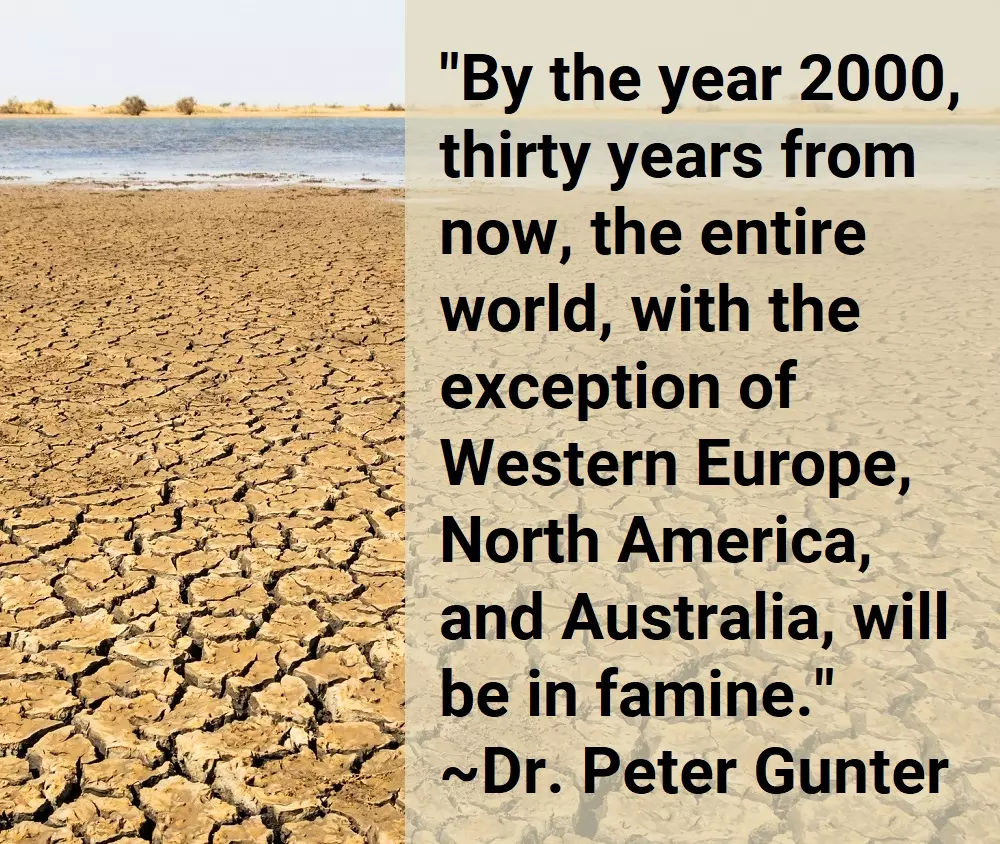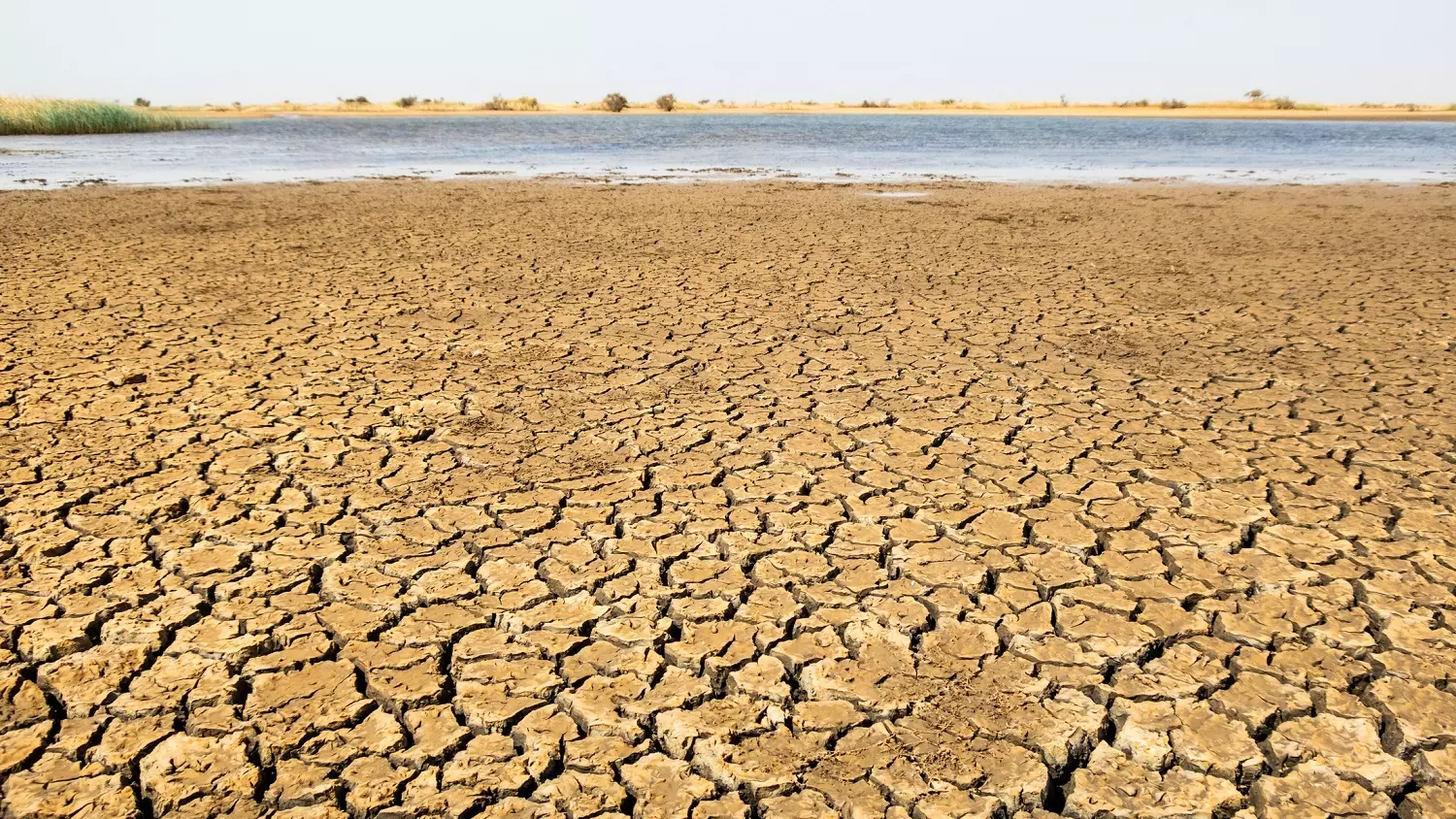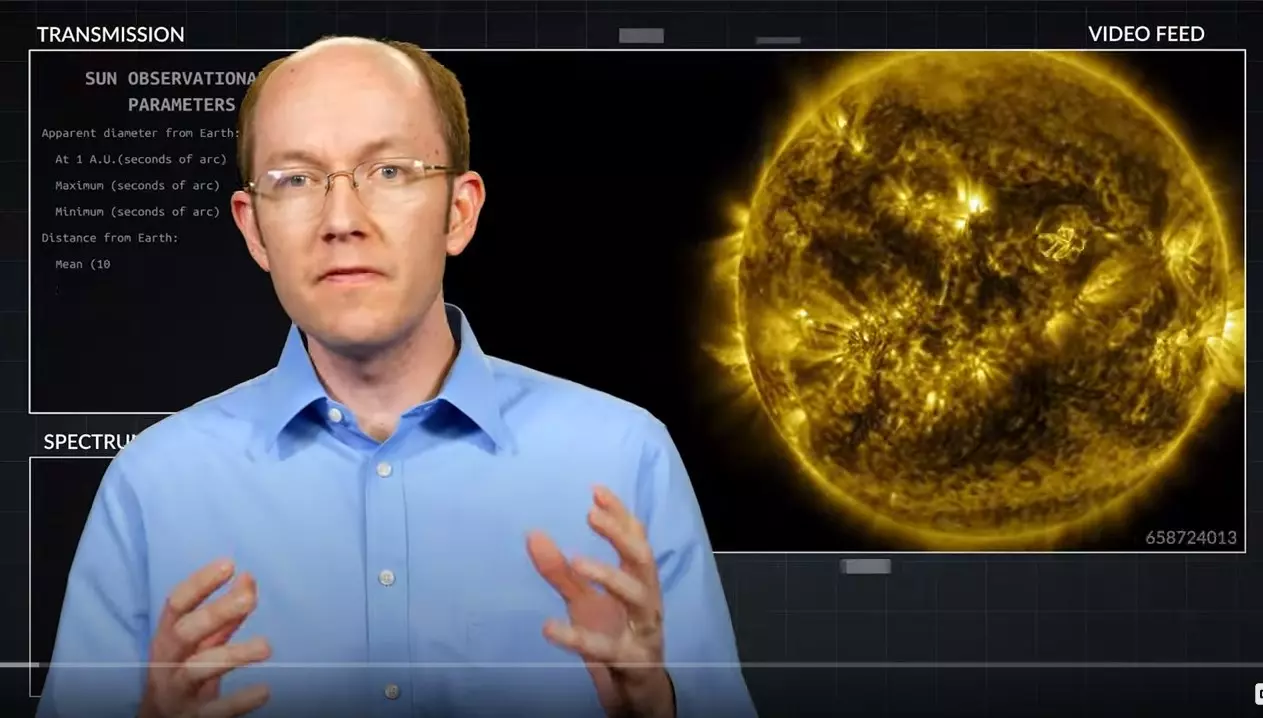[Originally published April 23, 2018 as Earth Day Predictions that Were “Spectacularly Wrong”]
Probably because yesterday was Earth Day, I ran across an article written by Ronald Bailey for Earth Day 2000. It reviews some of the predictions made by “environmentalists”¹ in the 1970s, when the first Earth Day was celebrated. As Bailey noted back in the year 2000:
The prophets of doom were not simply wrong, but spectacularly wrong. (emphasis his)
 There are a lot of failed predictions in the article, but I want to start with the one I highlighted in the meme above. Here is the full quote, which is found in the Spring 1970 issue of The Living Wilderness:
There are a lot of failed predictions in the article, but I want to start with the one I highlighted in the meme above. Here is the full quote, which is found in the Spring 1970 issue of The Living Wilderness:
Demographers agree almost unanimously on the following grim timetable: by 1975 widespread famines will begin in India; these will spread by 1990 to include all of India, Pakistan, China, the Near East, and Africa. By the year 2000, or conceivably sooner, South and Central America will exist under famine conditions….By the year 2000, thirty years from now, the entire world, with the exception of Western Europe, North America, and Australia, will be in famine. (emphasis his)
Notice how Dr. Gunter starts. He uses the consensus argument. He says that demographers (those who study human populations) “agree almost unanimously” with his grim forecast. I have no idea whether or not that statement was correct back in the 1970s, but it is eerily similar to what we hear now in reference to global warming, aka climate change. Climate alarmists insist that we must listen to them, because climate scientists agree almost unanimously that doom is right around the corner. In light of this fact, it is useful to note that the supposed “consensus” has been spectacularly wrong before.
Another spectacularly-failed prediction involved the availability of crude oil. I remember sitting in high-school calculus and watching a video in which a mathematician “proved” that the world would be out of oil by the year 2000. Back in those days, such predictions were common. Bailey highlights ecologist Kenneth Watt’s 1970 prediction about oil:
By the year 2000, if present trends continue, we will be using up crude oil at such a rate…that there won’t be any more crude oil. You’ll drive up to the pump and say, “Fill ‘er up, buddy,” and he’ll say, “I am very sorry, there isn’t any.”
Of course, that scenario never happened, despite the fact that on average, the world’s use of crude oil has been rising since the 1970’s.
I can understand the motivation behind such wild predictions. Most doomsayers honestly believe that a global cataclysm is right around the corner. Thus, they think they must emphasize just how bad it will be if people don’t do something right now. To them, these wild predictions are necessary motivators for the uneducated masses. To the actual people who have to produce the change, however, they don’t serve as motivation. They serve as a reminder of how the doomsayers were wrong before.
While articles like Bailey’s give gory details about the spectacularly-failed predictions from years past, most people don’t need such articles. They remember sitting through videos telling them that we would run out of oil, videos telling them they would have to wear gas masks to leave their homes, and videos telling them that the increase in the world’s population would lead to massive starvation and disease. They remember such predictions and now, decades later, they see just how silly those predictions were. This makes them much less likely to believe the predictions of the current doomsayers.
So if you want to convince people that there is an economic or environmental catastrophe ahead, don’t use fear, use facts. The fear will probably do more harm than good.
Note:
I put quotes around the word “environmentalist” because many who call themselves “environmentalists” are actually working against the well-being of the planet. If you want to care for the planet, science must be your guide. Unfortunately, many who call themselves “environmentalists” ignore science, promoting emotion instead. As such, they are probably doing the planet more harm than good.






